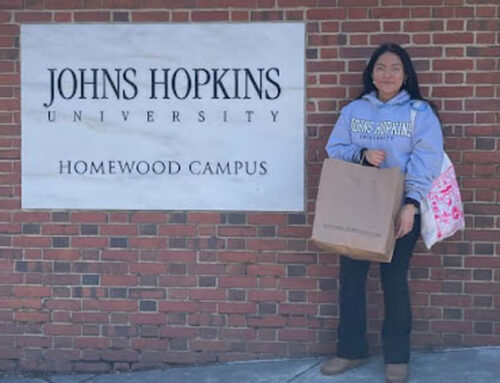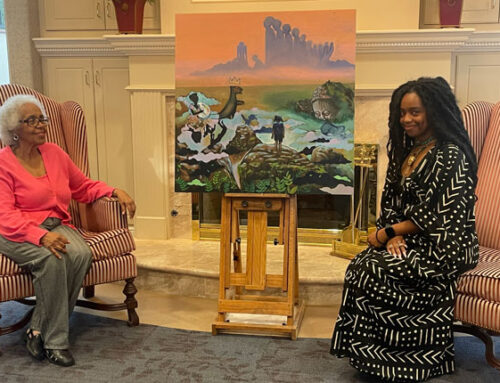The California State University and California State University, Fresno will confer an honorary doctoral degree – the CSU’s highest commendation — on Fresno State alumna Mary Carolyn Dobbs of Grass Valley, a teacher and pioneer in special education whose work has achieved international recognition, during Commencement ceremonies Saturday, May 22.
Dobbs, who was born in 1911 – the same year Fresno State was founded – will receive the honorary doctorate degree in humane letters in recognition for her contributions to special education through her advocacy at the state and national levels and her tireless efforts to win teaching and legislative improvements for children with special needs.
The Commencement ceremony for the Class of 2004 begins at 10 a.m, in the Save Mart Center at Fresno State and lasts approximately two hours, More than 4,000 students are eligible for the conferral of degrees.
“I am humbled, overwhelmed and deeply grateful for this honor,” said Dobbs. “I’m proud of my alma mater.”
Dobbs’ work with special education students came during a time when stereotypes were common.
“My career was fraught with vast, intense challenges because of all of the opposition in my work,” she said, “Handicapped people were looked upon with disdain and scorn
and we had to put forth our best efforts to change that, on a global scale. We had much to overcome.”
And overcome she did. Her tireless work brought significant changes for
handicapped children, both at the state and national levels in the classroom and in
everyday life, including blue parking zones for the handicapped, removing architectural barriers, adding sloped curbs, lowering telephones, widening doorways and grading access to buildings.
Dobbs is a native of New York who, because of health problems, decided to move to California. She enrolled at Fresno State College and received her Bachelor of Arts degree and a General Elementary Teaching Credential in 1944, She received a Master of Arts degree and Secondary and Special Education Certificates in 1953. She also earned a Clinical Psychologist Testing Certificate from UC Berkeley in 1961.
Dobbs’ 32 years of public school teaching began in Fresno County at Biola Elementary School (1944-47). She later was a master teacher in special education in Berkeley (1947-66) and an educational specialist (special education) in Grass Valley (1966-76). She also was a lecturer at the University of North Carolina (1959) and consultant and lecturer at UC Berkeley (1961-65).
While teaching, she became increasingly focused on teaching strategies especially designed for underprivileged children raised in environments of poverty, broken homes, cultural gaps and language difficulties. This led her to further research and studies that resulted in numerous publications and professional recognition at state, national and international levels.
In 1969, Dobbs was recognized with the Lane Bryant Award for Volunteer Service to the Community. In 1971, she was recognized with the National Volunteer Award and in 2000 with the National Teachers Hall of Fame Exemplary Teacher Award.
Awards from the State of California include the California State Department of Education Mental Retardation Award for Most Significant Contribution (1966), a commendation from Gov. Ronald Reagan in recognition of Endeavors on Behalf of Handicapped Children (1970), Special Education Teacher of the Year (1971) and the California Governor’s Committee for Employers of the Handicapped – Citation for Mentoring Service (1974),
Dobbs served for 15 years on the United State President’s Committee on the Employment of the Handicapped and for 10 years on the California Governor’s Committee for Employment of the Handicapped.
Dobbs’ influence also was extended as an editor and writer, She has published approximately 300 instructional and theoretical papers in U.S. journals and another 100 essays in foreign journals.
In 1952 she established the Pointer, which became one of the most prominent national and international journals for special education. She served as editor until 1978. The Pointer placed emphasis on assistance and support for teachers of the retarded and handicapped, with teacher-oriented materials, classroom projects and workable ideas for way to reach students effectively.
Dobbs also provided consultation services in special education throughout the United States and in India, Japan, New Zealand, Australia, Canada, West Indies, South Africa and Uganda.
Teachers continue to confer with Dobbs about classroom problems and parents continue to write and telephone her for guidance. She currently contributes inspirational essays weekly to the Mountain Messenger of Downieville and swims at a local fitness club three times a week.


